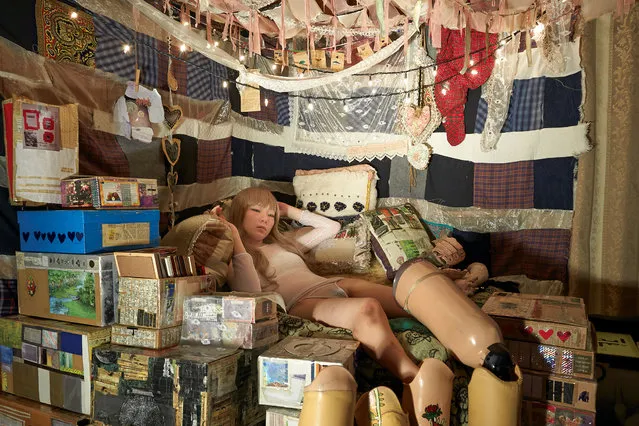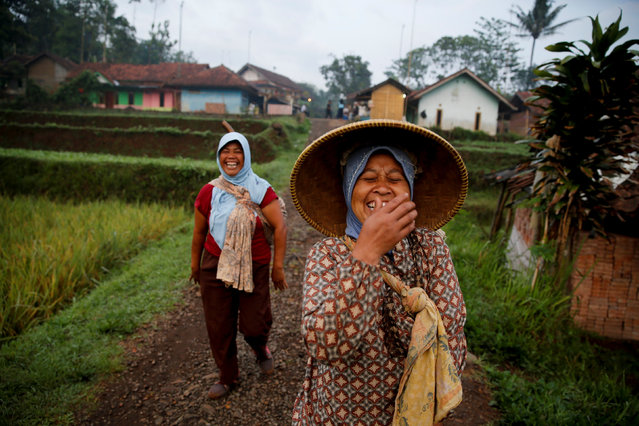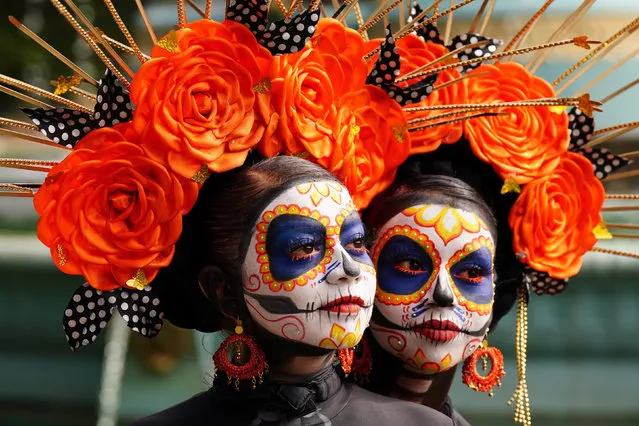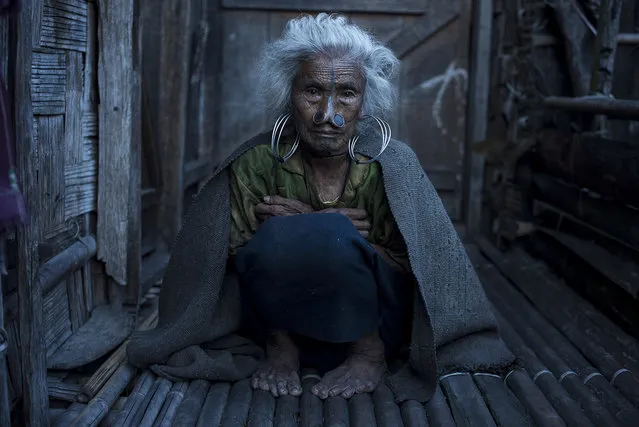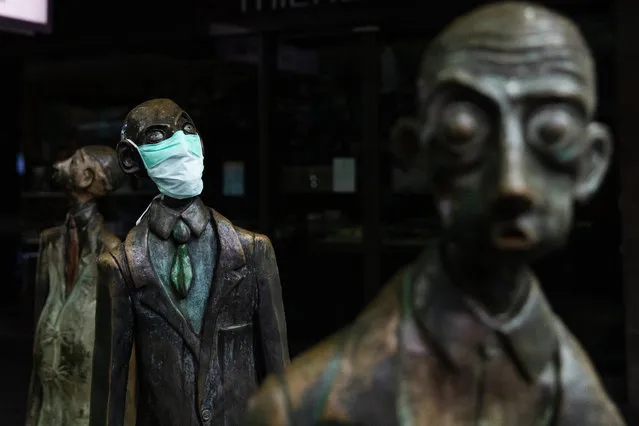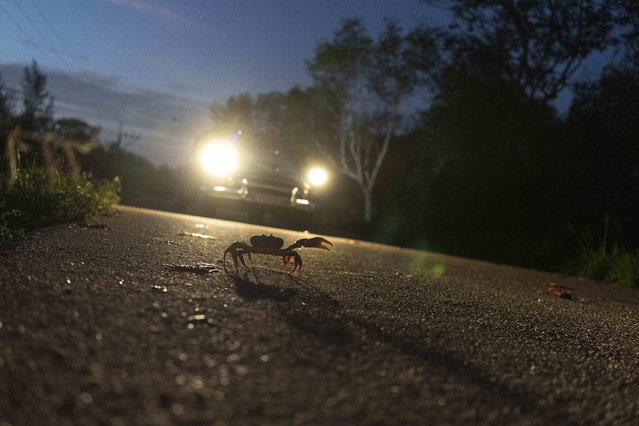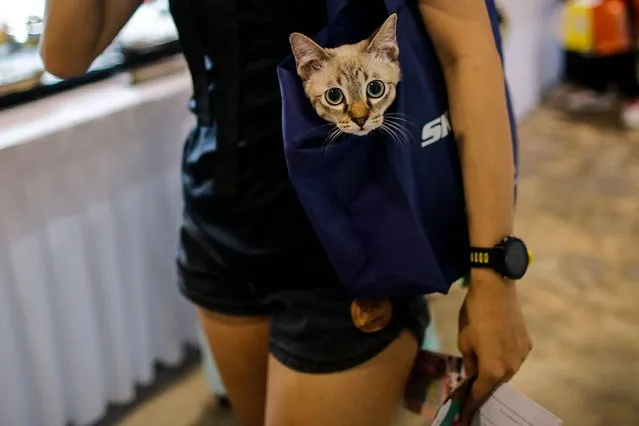
A curious cat ipeeks out of a bag carried by its owner on a tour of the Cat Expo 2022 in Kuala Lumpur, Malaysia, 30 September 2022. The “Ekspo Kucing”, described as Malaysia's Largest Cat Expo runs from 30 September to 02 October 2022 at the Matrade Exhibition and Convention Centre (MECC) in Kuala Lumpur and “will also feature other variety of pets such as rabbits, hamsters, guinea pigs, reptiles and exotic animals”, the MECC said on its website, along with other highlight events such as a Federation Internationale Feline (FIFe) Cat Competition, Cat Adoptions or a “Sugar Glinder Contest”. (Photo by Fazry Ismail/EPA/EFE/Rex Features/Shutterstock)
28 Oct 2022 05:09:00,post received
0 comments

